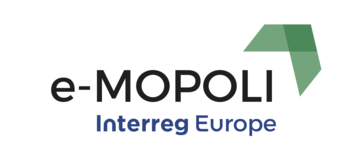THE FUTURE OF ALTERNATIVE FUELS (Part.1)
Development policies Public passenger transport Logistics
On Wednesday, 26 May 2021, an online conference “THE FUTURE OF ALTERNATIVE FUELS Development Policy, Public Passenger Transport, Logistics” was held, organized by GIZ ACS and BSC, Ltd , Kranj. At the event, Milena Černilogar-Radež from the Ministry of Infrastructure of the Republic of Slovenia, Nikolaj Grgurevič from the Ministry of the Environment and Spatial Planning of the Republic of Slovenia, Silvester Vučak from DPD Ltd, Mateja Kukovec from ZUM Ltd and Iztok Štrukelj from the company Arriva LTD presented their views on the current state and the future of the use of alternative fuels.
The public event was organised to present the e-MOPOLI action plan proposing actions for the national Operational Programme for the implementation of the European cohesion policy 2021-2027 (OP), to introduce the cooperation with the managing authority of the policy, to get the information first hand on the consideration of the proposed actions aiming to be included in the OP and to get informed about current state of play and the future of the use of alternative fuels.
Unlike the only existing measure to promote electric mobility in the current Operational Program, the proposed incentives and investments are covered by 8 proposed measures, which include incentives for the introduction of vehicles on alternative fuels, infrastructure, simplification of administrative procedures, promotion of research and development in economy. The Ministry formally undertook to consider proposals for inclusion in the Operational Program in February 2021.
The event was organised jointly with another INTERREG project, which is tackling issues on the same topics. Interreg Alpine space e-SMART project addresses the challenges of policy unification in promoting electric mobility in the segment of last kilometer logistics, public road passenger transport, development of smart electricity distribution systems and the need to introduce digital solutions to improve policy design for smart cities in Europe, in the alpine regions. By establishing so called living laboratories, which bring together experts at the regional level of Italy, Germany, Austria, France and Slovenia and connect them into a transnational living laboratory, the project enables the exchange of knowledge and good practices in the field of electric mobility.


![[NEWS] Brescia: E-bike sharing in Brescia](/fileadmin/user_upload/tx_tevnewsevents/news/image_1664960602.jpg)
![[NEWS] Rogaland: battery-only high speed craft](/fileadmin/user_upload/tx_tevnewsevents/news/image_1664804367.png)
![[NEWS] BSC: promoting e-mobility in Gorenjska](/fileadmin/user_upload/tx_tevnewsevents/news/image_1660136312.png)
![[NEWS] BSC: new opportunities for cooperation](/fileadmin/user_upload/tx_tevnewsevents/news/image_1660136159.jpg)
![[NEWS] Rogaland: Solar power for electric airplanes](/fileadmin/user_upload/tx_tevnewsevents/news/image_1660135530.jpg)
![[NEWS] Bucharest: decarbonization of transports](/fileadmin/user_upload/tx_tevnewsevents/news/image_1656521459.jpg)
![[NEWS] Calabria: CENTRE FOR SUSTAINABLE MOBILITY](/fileadmin/user_upload/tx_tevnewsevents/news/image_1655983407.png)
![[NEWS] BSC: rental system network for bikes](/fileadmin/user_upload/tx_tevnewsevents/news/image_1655967495.png)
![[NEWS] Attica: Electromobility in Paiania](/fileadmin/user_upload/tx_tevnewsevents/news/image_1655110894.png)
![[NEWS] Attica: First e-bike festival in Athens](/fileadmin/user_upload/tx_tevnewsevents/news/image_1655110292.png)